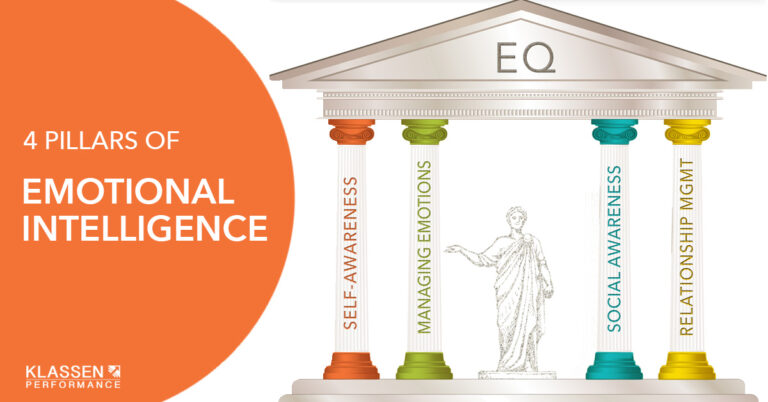
Resilience Is Your Paddle When You’re Up the Proverbial Creek
There are times in all of our lives when we find ourselves up a creek without a paddle. Some of the setbacks that knock us off course are relatively minor while others are devastating.
Regardless of the setback that put you up that creek, one thing is certain: resilience is your paddle. The more resilient people are, the faster they bounce back from any setback. Resilient people use a variety of coping strategies to help them deal with setbacks and adversity and rebound quickly to a state of productivity and satisfaction.
People who lack resilience tend to drift aimlessly. They may feel overwhelmed, victimized, self-pity, hopeless, etc. Their productivity and their satisfaction plummet until they find a new direction and begin paddling again.
Let’s look at 5 strategies you can use to get paddling again in the right direction.

1. Surround yourself with the right people
There are 2 things to consider when evaluating your network. First, do you have one? This network is more valuable than most people realize. In one study of nearly 3,000 nurses with breast cancer, those who reported having at least 10 friends were 4 times more likely to survive than those who didn’t have close friends. Are there people who support you that you enjoy spending time with whom you can confide?
The quality of your network is also an important consideration. During challenging times, surrounding yourself with positive, resilient people will help you be more positive and regroup faster. People who complain, blame, and wait for others to solve their problems will hold you back. Look around you. Do you have the right people in your network?
If you wait until you need these relationships to develop them, it’s too late. I can’t emphasize enough how important it is to develop these relationships before you need them. Don’t let a feeling of invulnerability trick you into failing to develop supportive friendships. Make time to nurture personal and professional relationships. Find opportunities to support others and they will be there when you need them.
2. Tap into your motivators
Facing adversity or a setback can be discouraging and drain you of the energy required to begin moving forward again. Identify what motivates or energizes you. We are not all motivated by the same things so it is important to give some though to what will energize you to start paddling again. Are you motivated to:
- Achieve a sense of accomplishment?
- Find a new purpose?
- Earn the respect of others?
- Find the lesson?
- Beat your previous results?
- Collaborate with others to get back on track?
When you tap into your personal motivators, you will feel a jolt of energy. The more you focus on them, the more energized you will feel. That can mean the difference between aimlessly drifting and purposefully moving in the right direction.
3. Manage your thoughts
Our thoughts directly impact our behavior. One of our clients recently went through a significant reorganization. I received many calls from people looking for help. As each person talked about the reorganization, I found that I was able to predict what they would do based on their perception of the situation.
One man who was reassigned to a new position thought his career was irreparably damaged because his previous career path no longer existed. His thinking was very negative and he felt hopeless. He was drifting aimlessly.
A peer of his thought about it very differently. The career path she was on also vanished. She, however, viewed it as a challenge to find a way to use her strengths and create a new career path. Thinking of it this way energized her and got her moving forward again. It was a different direction, but she embraced it.
Remember, there are many ways to think about the things that knock you off course. If you find your mind swirling in negative thoughts, stop and write them down. Challenge their validity. Are they facts? Is there another way to look at the situation?
We often have more options than we realize. Don’t allow yourself to think, “I don’t have a choice.” Keep in mind that a choice you don’t like is still a choice, one of many you’ll make as you rebound. Remembering that can mean the difference between feeling empowered in a difficult situation and feeling victimized by it.
Resilient people believe they will bounce back, and they manage their thoughts to help them do so. Do your thoughts tend to lead to aimless drifting or do they help you refocus?
4. Manage the stress
Stress is a natural byproduct of setbacks and adversity. Monitor your stress level so you can consciously manage it. This is so important that we have a course devoted to helping people increase their awareness of and manage their stress. One effective stress-management strategy that can be used almost anywhere is breathing. Deep breaths have been shown to decrease cortisol levels, which help reduce stress. The most effective breathing to manage stress is to inhale through the nostrils for 4 seconds and exhale through the mouth for 4 seconds. Focusing only on your breath during this time will help you regroup faster, and it will help you concentrate more effectively when you return to your task. Both outcomes are helpful when it comes to resilience.
5. Find what you can control
It is difficult to move forward when we don’t feel like we have control. Remember, we can’t control what happens to us, but we can control our response to it. Finding what you can control during difficult times and making conscious choices from there will increase your confidence and help you rebound faster.
Next time you find yourself up the proverbial creek, remember resilience is your paddle. Surround yourself with positive people who will accelerate your rebound. Tap into your internal motivators to reenergize. Manage your thoughts so you’re focusing forward, not backward. Find ways to manage stress that are effective for you. Finally, in every situation, there are things you can control. Find those and make conscious choices where you can.
This was just a summary of 5 of the strategies you can use to build your resilience. For those of you who would like additional strategies and more in-depth help for yourselves or your teams, we offer a course on resilience.







